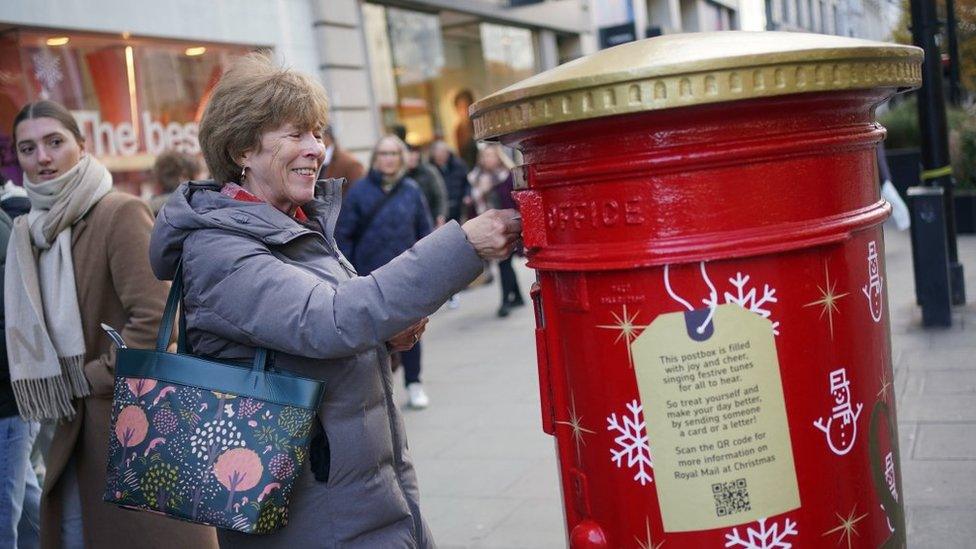Christmas cards: Welsh Bethlehem tries to save tradition
- Published
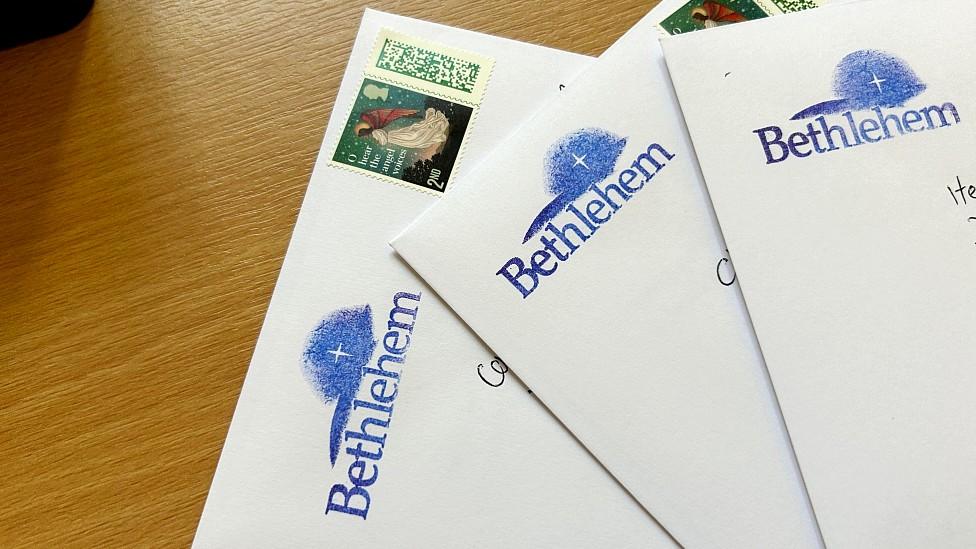
For a modest 10p charge, the Bethlehem stamp can adorn your cards
Welcome to (o little town of) Bethlehem, Wales.
As the carol says, it's definitely little, although not exactly a town, and also pretty still with plenty of silent stars going by in the wide Carmarthenshire skies.
It's also the place thousands of people have travelled to over the years in the run-up to Christmas to get a unique stamp for their seasonal cards from the tiny hamlet, population just 150.
Once upon a time, the post office in the village would have automatically stamped the card with the Bethlehem frank, or postmark, as Bethlehem hall manager Nia Clement, a resident for 40 years, explained.
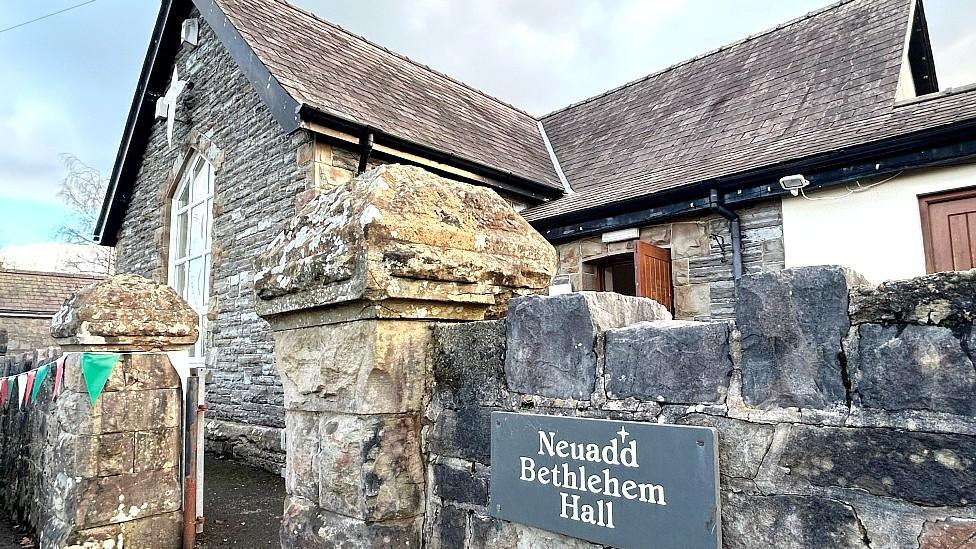
The money raised from the stamping service at the village hall goes towards its upkeep
"The postmaster [in Bethlehem] used to do it originally when every town had a frank, so wherever you lived you would have a frank from your local post office," she said.
"When the post office closed down, the post office used to bring a van with a franking service. We used to get hundreds of people coming to have a Bethlehem frank."
After the village school closed, the village clubbed together to buy it and use as a community hall - the only remaining communal space - and the post office rented a room to run a service from for a while but then that ended as well.
But that was not the end for the Christmas card association.
"The village decided the Bethlehem stamp was a tradition they didn't want to let go so the people of Bethlehem created a stamp," said Nia.
"It's been extremely popular with people outside the area but with the cost of cards and postage, it's in decline.
"People used to bring 50 cards and now they're coming with five. Some days we are very busy, other days nothing."
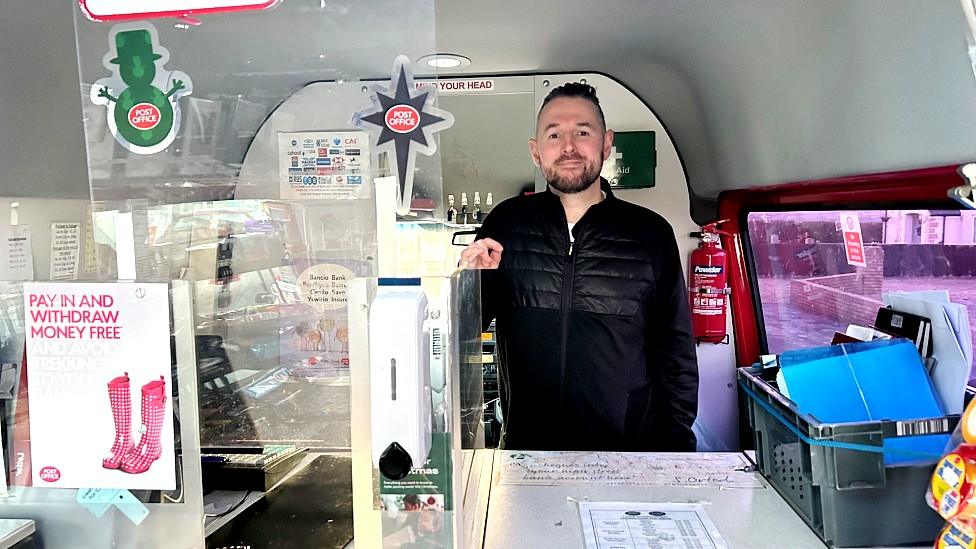
Mathew Evans has seen many people come in hoping for an official Post Office Bethlehem frank
Two years of Covid and then a Post Office strike which suddenly brought forward last posting dates in 2022 have seen the tradition take a dent in recent times, but there are still people coming from the wider area, and sometimes much further afield, to get their seasonal Bethlehem stamp.
Some - mistakenly - still come to the weekly mobile service which visits for a hour each Wednesday to get the stamp, under the impression that the Post Office still offers the service.
Counter clerk and driver Mathew Evans said: "People come in all the time [asking for a Bethlehem] stamp. People are disappointed, or annoyed. Some don't believe me.
"Somebody came from Caerphilly once. It's quite far to come to be told 'no, we don't do it'. I think they were hoping for the official Post Office stamp."
Both people offering the service and some of those coming to use it recognise that society is at a turning point when it comes to the Christmas card sending tradition.
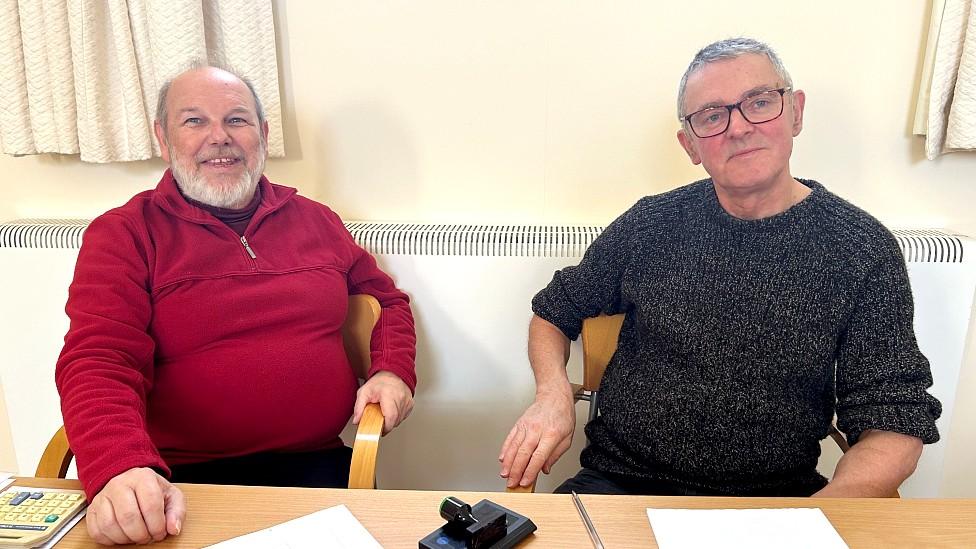
Chris Brown and Andy Brice man the stamping service when BBC News visits as part of Bethlehem's hall committee
The rise of digital messaging and social media over the past 20 years means it is now simple for people to stay in contact. Christmas cards represent an unacceptable waste of paper to those understandably concerned about the environment.
And probably most significantly, the cost-of-living crisis and the soaring cost of postage relative to the past prevents or deters people from sending too many, or even any, cards.
Despite that, Royal Mail is still estimated to deliver 150 million cards over the Christmas period and the Greetings Card Association estimates a total of one billion cards are bought and given. So the tradition may be dented but it is certainly not on its last legs yet.
Over the years people have travelled hundreds of miles to get to Bethlehem, although not so much on donkeys these days, apart from a local pilgrimage at the weekend from nearby Llandeilo.
Nia and other committee members recall a man who came from Birmingham in order to get the Bethlehem mark on a card he was posting to his daughter in Bethlehem, Pennsylvania in the USA.
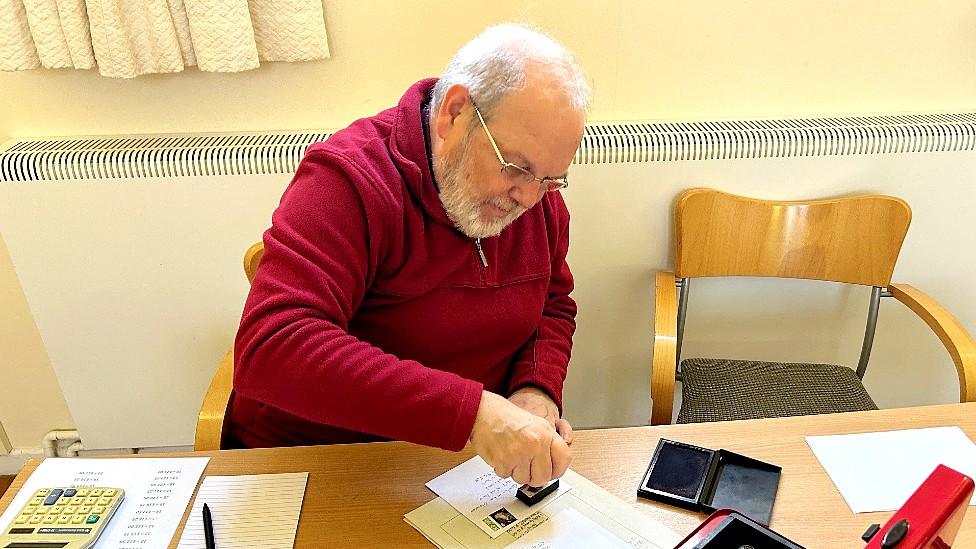
As well as the stamps, the hall sells a range of Bethlehem merchandise in person and online
A touring group of cyclists from the Netherlands who were visiting England made a special journey all the way out to west Wales when they happened to hear of the tradition.
Inevitably, weekends are their busiest times but even during a weekday, the hall had seen about 20 visitors by lunchtime, halfway through the four-hour opening time.
Andy Brice, a retired TV producer, is one of the local volunteers and is new to the service this year, having just moved to Bethlehem in March, but has a slight family connection to the tradition.
"My dad used to come in the '60s," he explained.
"He was a touring sales rep for the Co-op in Cardiff and he would mysteriously change his journeys so he could send cards to us from here with our franks from Bethlehem. It's a really good joining up of history.
"I just wanted to play a part and join in."
Taking over from Andy for the remainder of the session is Chris Brown, who lives just outside nearby Llangadog and has been part of the committee for five years.
He said the unexpectedly sunny weather has probably helped bring people out that day. The hall offers a small cafe service, and people can also buy some Bethlehem merchandise, including jewellery items handmade by Chris, an enamellist.
All the money raised goes towards the running of the hall, including the modest 10p charge per stamp for the cards.
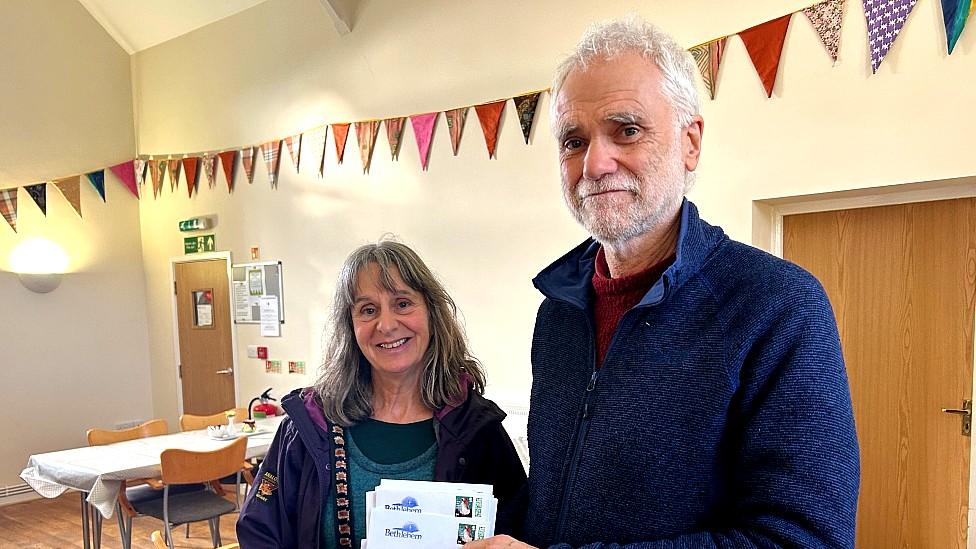
Di and Jeremy Bultitude think having access to the Bethlehem stamp encourages them to send Christmas cards
As he talks, Di and Jeremy Bultitude, who also live near Llangadog, arrive with dozens of cards to be stamped.
They moved into the area six years ago and say they have tended to come and do it every year, Covid interruption aside.
Both in their 60s, they said the number of cards they were both sending and receiving had got "progressively less every year", adding: "There are more e-cards now."
Whereas in the past they might have sent cards to everyone, now if they have contact with people through sites like Facebook, they are less likely to include them.
However Di said: "If you have moved around and have got friends all around the country it's a nice way to stay in touch. People do appreciate the [Bethlehem] stamp."
Jeremy added: "People do know that the cards have come from us. I think it's really special. I don't think we'd send so many cards if we didn't have Bethlehem up the road."
But they know the days of the tradition could be numbered. Are they likely to be sending Christmas cards a decade or so from now?
"I think for the older relatives I will but there's only a couple of them left," admitted Di.
"I can't see our grandchildren doing it. We must be the last generation left."
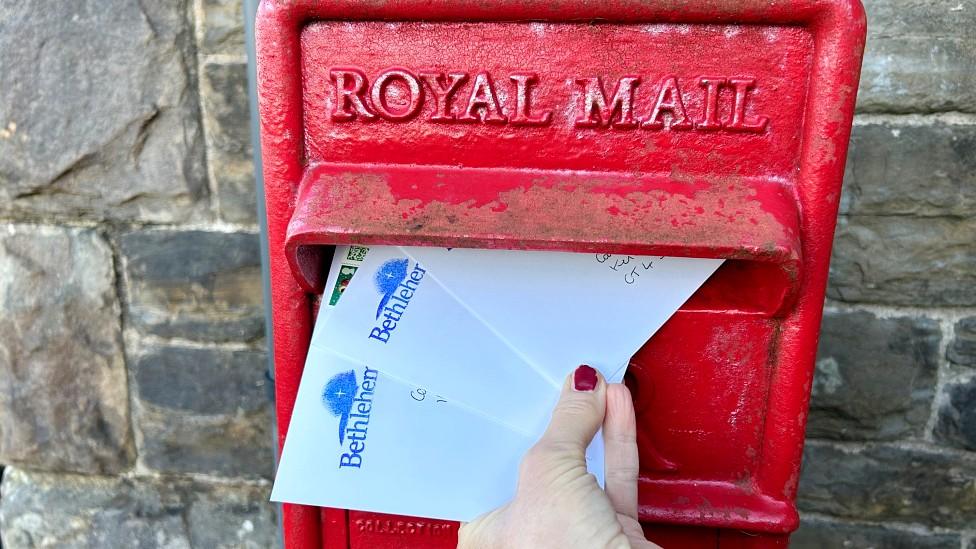
Cards can be posted at the village hall - but it will be franked in Cardiff
Related topics
- Published15 December 2023
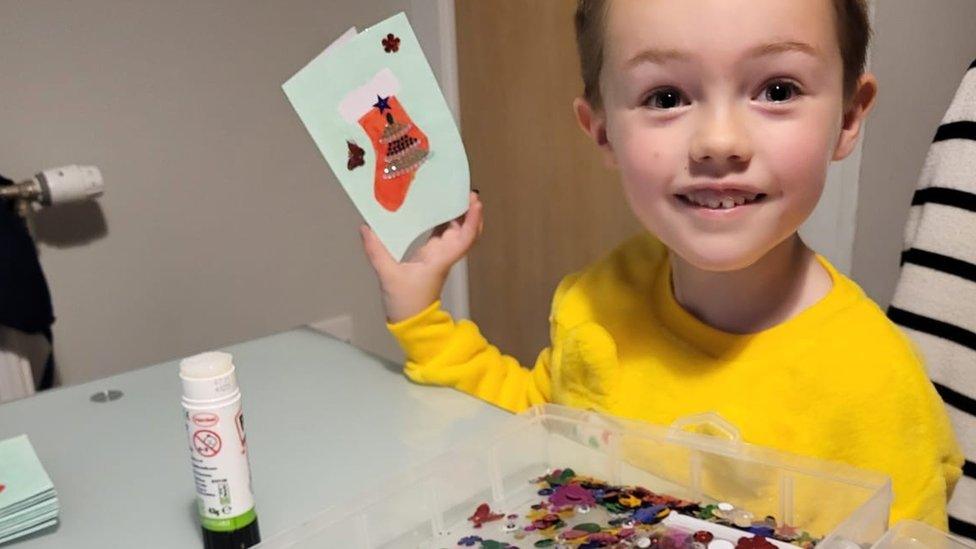
- Published24 May 2023
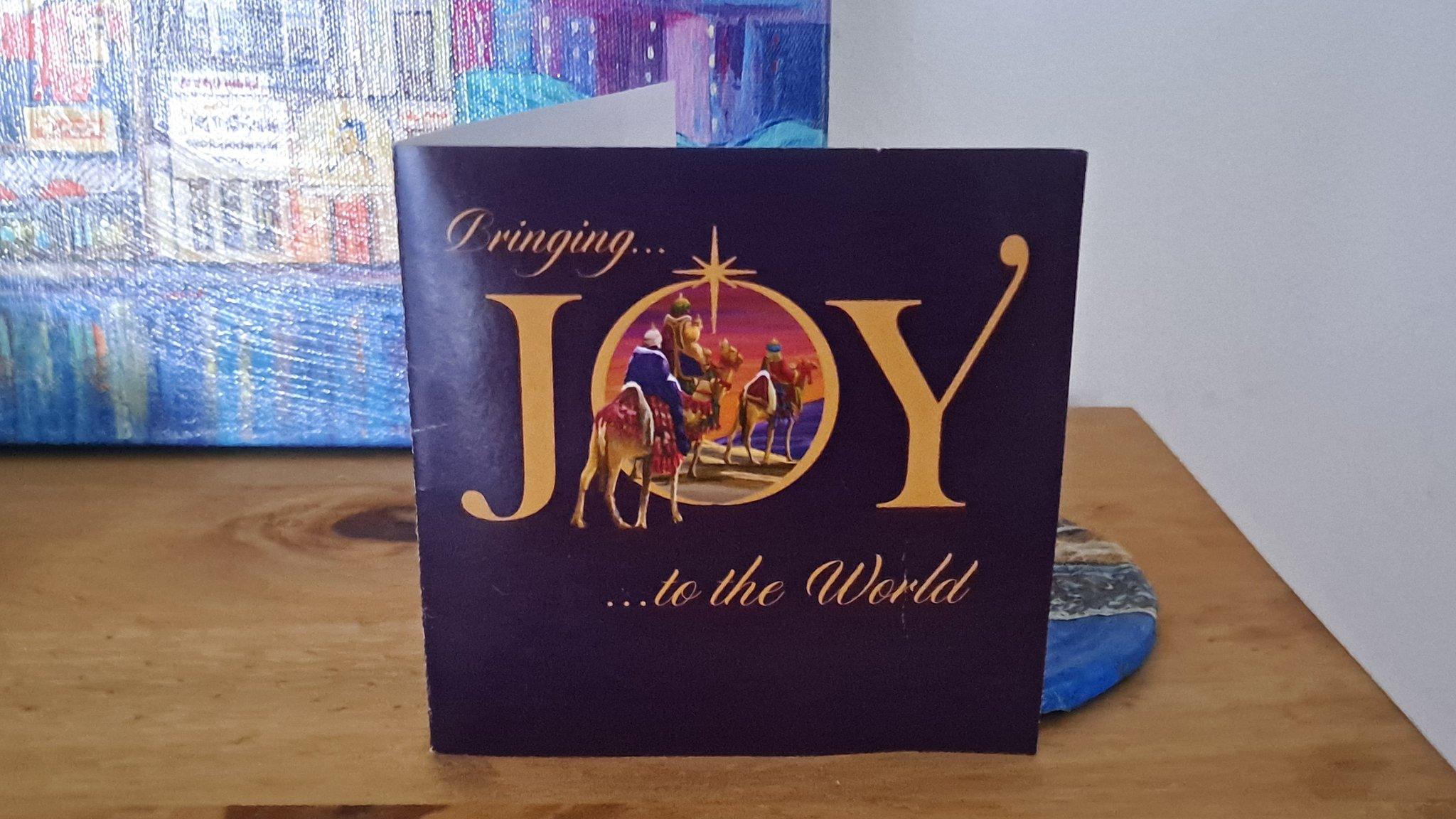
- Published11 December 2023

- Published1 December 2023
